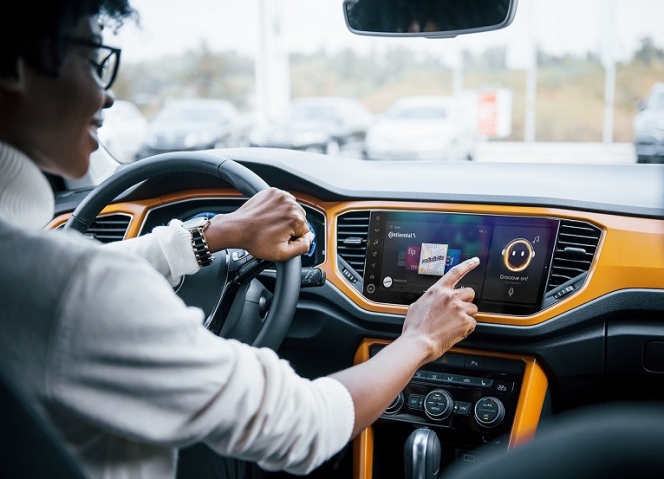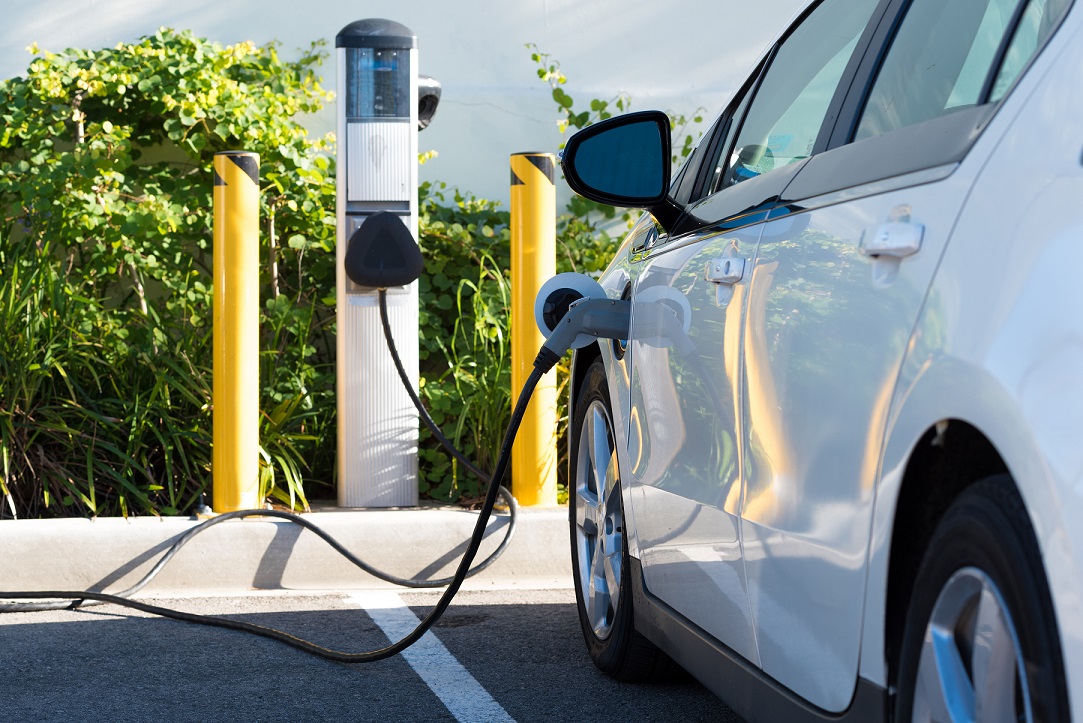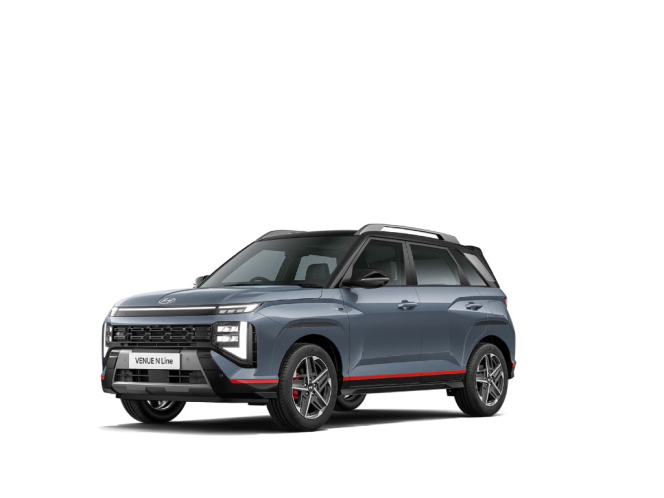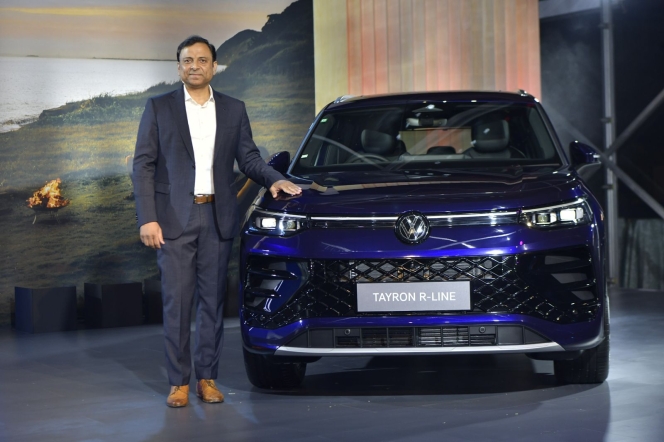Young People See Cars As Status Symbol Finds Continental Study
- By MT Bureau
- October 30, 2024

German tier 1 supplier Continental recently commissioned a representative mobility study in August 2024 to understand the perception about young people on mobility needs.
For the Mobility Study 2024, infas was commissioned by Continental in August 2024 to survey a total of around 5,000 people aged 18 and over in Germany, China, France, Japan and the USA about their mobility habits and attitudes to a variety of mobility issues. In each country, the respective sample is representative of the population; for China, it is representative of the urban population. The aim of the Continental Mobility Study, now in its eighth edition since 2011, is to provide an international comparison of people’s attitudes toward current and future developments in mobility and their personal usage habits. The range of topics covered in this year’s study included automated driving, user experience, AI in cars, sustainable mobility concepts, mobility in urban areas, the affordability of mobility and attitudes toward government regulation in the mobility sector.
The key findings found that overall, 84 percent of car owners in Germany, regardless of age, believe that it is important to own a car. For almost 90 percent, having a car is essential for shopping and running other errands. The majority of young people in Germany are particularly enthusiastic about technological advances in cars. They look forward to the benefits self-driving cars will offer in terms of being able to read, play video games or work (51 percent of 25 to 34-year-olds). In addition to autonomous driving, artificial intelligence (AI) in the form of digital voice assistants is very popular with this group. There is a similar level of approval in the four other countries surveyed in the study.
Philipp von Hirschheydt, Executive Board member responsible for the Automotive group sector, Continental, said, “The findings show that the response to new technologies such as automated driving, large displays and AI in cars varies greatly between generations and also between countries. That’s why we aim to provide customised solutions – market-specific, tailor-made and modular.”
The findings of the study also reveal the current status of the trend toward lower-emission mobility worldwide. Particularly striking is that acceptance of fully electric cars remains low.
In Germany, only 3 percent of all car owners have an electric vehicle. However, just over a third of respondents who do not yet own an electric vehicle believe their next car will be fully electric (39 percent, compared with 34 percent in 2022). By contrast, hybrid drives are highly popular across all countries. In Germany (48 percent) and the USA (47 percent), nearly half of respondents who do not own an electric car can imagine their next vehicle being a hybrid with a combustion engine and an electric motor.
In China, that figure rises to almost nine out of 10 respondents (86 percent). This means that hybrid cars could increasingly bridge the gap to e-mobility and give it a renewed boost. With a share of 68 percent, younger people in Germany aged between 25 and 34 are particularly interested in electric cars – also compared with their international peers.
Vehicle as a status symbol
On the one hand, younger people up to the age of 34 in Germany do not feel that attached to cars. For them, more than for older respondents, it is one of many means of transportation available. On the other hand, generation Y and Z drivers born in the 1990s and later have a clear emotional connection to their cars: for more than half of 18 to 34-year-olds (54 percent) in Germany, cars are regarded as a status symbol – twice the share among respondents aged 45 and over. People aged between 18 and 34, particularly those living in large cities, see cars as a prestige item (67 percent). In small towns and rural areas, the approval rate is around 49 percent. This view of the car is accompanied by growing expectations. Of the 25 to 34-year-olds surveyed, for example, 51 percent believe that cars of the future should not only be a safe means of transportation, but also a place to relax and work.
Tech attracts young people
The study also found that younger people in Germany also had a positive attitude toward highly automated and autonomous driving, with around two-thirds (65 percent) of 18 to 34-year-olds seeing this as a useful development. Among older respondents aged 55 and over, 39 percent share this view. Around two-thirds of younger people up to the age of 34 also believe that state-of-the-art technologies should be mandatory in newly registered cars in order to make traffic even safer – a viewpoint that signals approval of the EU directive requiring certain advanced driver assistance systems in new cars, which has been in force since July 2024.

Another future technology that is particularly popular with younger people is AI assistants in cars. Almost three-quarters of respondents (74 percent) between the ages of 18 and 34 would welcome an AI voice as a service that, like a virtual travel companion, provides useful information about sights and restaurants along the route, finds the nearest gas or charging station, searches for free parking spaces or even compiles personal messages.
“Younger people in particular have changing expectations of cars. These are closely linked to pioneering technologies such as automated driving, which deliver new user experiences. At Continental, we’re already equipping cars with AI. Together with our partner Google Cloud, we have developed a virtual companion for drivers. We are particularly proud to be one of the first automotive suppliers worldwide to integrate Google Cloud applications directly into our vehicle computers,” added Hirschheydt.
Autonomous & AI
The comparison between countries reveals a widespread openness to highly automated and autonomous driving in Asia across all age groups. In China, nine out of 10 respondents (90 percent) view the relevant technologies as a useful development, while in Japan, almost three-quarters (72 percent) share this sentiment. In France (60 percent) and the USA (56 percent), more than half of those surveyed have a positive attitude. In Germany, around one in two respondents (49 percent) feel the same. An AI-powered virtual travel companion is particularly popular in China, where nine out of 10 respondents (91 percent) say they would like to have such a service. In the USA (66 percent) and Japan (63 percent), around two-thirds express this wish, while in France (58 percent) and Germany (57 percent) more than half would be happy to have the technology.
There is broad agreement across all countries on the ideal size of a car display for infotainment content. Most people prefer larger displays, with 90 percent of respondents in China favouring this option.
In Germany (81 percent), France (79 percent) and the USA (80 percent), eight out of 10 respondents would like their navigation, vehicle data and music to be shown on large screens.
In Japan, the figure is more than two-thirds (69 percent). However, preferences differ significantly when it comes to technological details. While the majority of respondents in Japan (79 percent) and more than half in Germany (57 percent) prefer a simpler display on car screens, a slight majority in the USA (58 percent) favour more colours. By contrast, many features are popular in China (69 percent). In Japan (70 percent), the majority prefer a more straightforward digital design, while in Germany, around half feel the same way (55 percent).
There are also differences between countries when it comes to the question of whether a display should be controlled by voice or manually: voice control is particularly popular in Japan (67 percent), more than half are in favour of it in China (59 percent), while the number is significantly lower in Germany (43 percent). In the USA, just over half (55 percent) also prefer to operate a display manually.
Hybrid
The study shows that hybrid drivers in Germany have an above-average interest in all-electric mobility – a strong indication that hybrid cars can play a key role as a bridging technology for the transition to fully electric drives.
For example, 43 percent of respondents who currently use a vehicle with a combined combustion engine and electric motor say that their next car will definitely be an all-electric vehicle. Those who drive a gasoline or diesel vehicle are significantly less open to such a switch (12 and 19 percent respectively). In addition, a clear majority (58 percent) of hybrid drivers would be willing to buy an electric car without a government subsidy.
The data suggests that hybrid vehicles are boosting people’s confidence in e-mobility and may help reduce any reservations about fully electric vehicles. One group with significant future potential for this development is the 48 percent of respondents who do not drive an electric or hybrid car and for whom an all-electric car is not currently an option, but who are considering a hybrid as their next car.
Varying degree in e-cars
The shift to electric mobility is under pressure in Germany, where sales of all-electric cars are faltering. According to the latest figures of the Continental study, electric cars represent a significant share (10 percent) of the overall passenger-car fleet in China, while only 3 percent of respondents in Germany drive an all-electric car and 91 percent a car with a combustion engine (China: 80 percent). There is potential for higher sales of electric cars in Germany, particularly among those aged 18 to 34. In this age group, around two-thirds (64 percent) of respondents believe it is certain or likely that their next car will be fully electric – a trend that gradually diminishes in older generations.

A look at age-dependent attitudes toward electric mobility reveals that, like many other technological developments, e-mobility is more appealing to younger drivers than older ones. They are more willing to forgo subsidies: 50 percent of 25 to 34-year-olds would consider buying an electric car without government assistance. However, the willingness to fully finance an electric vehicle decreases significantly among those aged 45 and older.
EVs and subsidy
The study found that two-thirds of respondents in Germany link the purchase of an electric car to a government subsidy is an expression of their concerns about being unable to finance an electric car on their own. In Germany, 71 percent of respondents worry that mobility will no longer be affordable due to rising energy prices. In the 2022 Mobility Study, 73 percent of people in Germany expressed their concerns about the affordability of mobility.
What’s more, 65 percent of respondents fear that they will not be able to afford an electric car in the near future and 56 percent are worried that driving could soon become too expensive for them. As a result, a clear majority (80 percent) expect policymakers to create the framework conditions to ensure that driving remains affordable. At the same time, they believe driving should be made more sustainable in the most cost-neutral way possible. Almost three-quarters (73 percent) of respondents think that the cost of environmentally friendly cars needs to fall. Regulatory interventions such as a speed limit of 130 kmph on highways are met with acceptance (62 percent), provided they do not lead to price increases. Younger respondents are less price-sensitive. They are much more prepared to pay a premium for environmentally friendly cars, especially if they are completely carbon-neutral in production and operation (40 percent of 18 to 24-year-olds compared with 13 percent of 45 to 54-year-olds).
Sustainable tyres
Sustainability is an important concern for people with cars is also demonstrated by their attitude to tyres. According to the study, almost eight out of 10 drivers in Germany (84 percent) who also value tyre recycling consider it important that their tyres contain an increasing share of environmentally friendly materials. When purchasing tyres, younger people (61 percent of 25 to 34-year-olds) are more concerned than older people about what happens to the tyres at the end of their service life.
Furthermore, 44 percent of car owners in Germany would be willing to pay a premium for tyres made from a higher share of renewable and sustainable materials. Here again, this willingness is most pronounced among 25 to 34-year-olds (65 percent).
Hyundai Motor India Reports INR 123 Billion Profit In Q3 FY2026
- By MT Bureau
- February 02, 2026

Hyundai Motor India (HMIL) has released its unaudited financial results for Q3 FY2026 and nine months ending 31 December 2025.
The company reported a Profit After Tax (PAT) of INR 123.44 billion for Q3, representing a 6.3 percent increase YoY. Revenue for the quarter reached INR 1,797.35 billion, up 8 percent compared to the same period last year. EBITDA stood at INR 2,018.3 billion, a 7.6 percent rise, supported by festive demand and the implementation of GST 2.0.
The company stated that the domestic demand was supported by wholesale volumes increasing 5 percent QoQ. The Hyundai Creta recorded sales of over 200,000 units in the 2025 calendar year, while the new Venue model has received nearly 80,000 bookings to date.
Hyundai Motor India also entered the commercial mobility segment with the Prime HB and SD taxi models. Exports grew by 21 percent YoY in Q3 FY26, accounting for 25 percent of the total sales mix.
For the nine-month period, EBITDA reached INR 6,632.5 billion, a 3.3 percent increase. EBITDA margins expanded to 12.8 percent, up from 12.5 percent in the previous year, despite costs related to capacity stabilisation and commodity prices.
Tarun Garg, Managing Director & Chief Executive Officer, said, “The third quarter performance underscores our resilience and strong execution of 'Quality of Growth' strategy, marked by healthy growth in volumes, revenue and profitability. Notably on a year-to-date basis, EBITDA margins expanded to 12.8 percent as against 12.5 percent last year, supported by our efforts towards improving sales mix and prudent cost control measures. As we move ahead, the robust January’26 sales number gives us great momentum towards a healthy 2026.”
|
Particulars |
Q3 FY26 |
Q2 FY26 |
Q3 FY25 |
9M FY26 |
9M FY25 |
|
Revenue |
179,735 |
174,608 |
166,480 |
518,472 |
512,526 |
|
EBITDA |
20,183 |
24,289 |
18,755 |
66,325 |
64,211 |
|
EBITDA % |
11.2% |
13.9% |
11.3% |
12.8% |
12.5% |
|
PAT |
12,344 |
15,723 |
11,607 |
41,759 |
40,259 |
Jeep Reaffirms India Commitment With Strategic Plan Jeep 2.0
- By MT Bureau
- February 02, 2026

Stellantis-owned Jeep has announced its Strategic Plan Jeep 2.0, positioning India as a central hub for its operations in the Asia Pacific region. The plan focuses on localisation, manufacturing depth, and export expansion from the company's facility in Ranjangaon, Pune.
As part of the strategy, Jeep intends to increase localisation levels to 90 percent, up from the current 65–70 percent. This move is aimed at strengthening supply-chain resilience and cost competitiveness. The Ranjangaon plant, which has an annual capacity of 160,000 vehicles, currently exports the Compass, Meridian, and Commander to markets including Japan, Australia and New Zealand. Plans are underway to expand exports to Africa and North America.
The company plans to introduce a new vehicle lineup in India starting from 2027. In the interim, Jeep will maintain its current portfolio through refreshes and special editions. To support its customers, the brand has introduced the Confidence 7 programme, which includes a buyback scheme, pre-maintenance packages, and extended warranties.
At present, Jeep operates over 85 sales and service touchpoints across 70 cities in India. The automaker stated that in 2025, the Wrangler Willys 41 limited edition sold out within seven days. The company is also focusing on its owner community, which has reached 100,000 members, through experiential platforms and brand clubs.
Shailesh Hazela, CEO & Managing Director, Stellantis India, said, “Jeep’s 85-year legacy is built on authenticity and adventure. Strategic Plan Jeep 2.0 lays out how we will sharpen our product strategy and strengthen the customer experience year after year, driven by deeper localisation, global product alignment, expanding our vehicle offerings, and programs that deliver real value. We are equally focused on taking care of our existing customers, ensuring they receive the support, service and confidence they expect from Jeep. Success in India demands resilience and long-term commitment and we are investing with that clarity to ensure Jeep remains a brand of pride and desirability.”
Maruti Suzuki India Reports INR 37.94 Net Profit For Q3 FY2026
- By MT Bureau
- January 28, 2026

Maruti Suzuki India, the country’s largest passenger vehicle manufacturer, has reported its financial results for Q3 FY2026.
The company reported revenue of INR 475.344 billion, as against INR 368.02 billion last year, net profit came at INR 37.94 billion, as against INR 36.59 billion last year. It is to be noted that the net profit was impacted for Q3 FY2026 was impacted due to a one-time provision of INR 5,939 million relating to new Labour Codes.
During the period, the company achieved its highest quarterly domestic sales of 564,669 units, an increase of 97,676 units over the previous year. Total sales reached 667,769 units, which included 103,100 units in exports. This performance was supported by a recovery in the car market following GST reform, with the small car segment in the 18 percent GST bracket contributing significantly to the volume increase.
For the nine-month period from April to December 2025, the company recorded its highest sales volume, net sales and net profit. Total sales volume reached 1,746,504 units, with domestic sales at 1,435,945 units and exports at 310,559 units. Net sales for this period increased to INR 1,242 billion, while net profit grew to INR 1,085 billion.
Financial statements for the period have been restated following the amalgamation of Suzuki Motor Gujarat (SMG) with MSIL. This process took effect from 1 April 2025. The company continues to monitor market conditions as it manages its manufacturing and sales operations.
The recovery in the car market was led by the small car segment. Sales growth in this category accounted for 68,328 units of the total domestic increase. The company remains focused on domestic and export markets to maintain its sales volumes.
Volkswagen India Unveils Tayron R-Line, Plans 4 More Launches In 2026
- By MT Bureau
- January 28, 2026

Volkswagen Passenger Cars India has showcased the Tayron R-Line, marking the first of five product interventions scheduled for 2026.
The company plans to introduce updates or new models in every quarter to maintain market presence. These interventions will include SUV, Sedan and Hatchback body styles, with each model intended for different segments of the premium market.
For 2026, the company stated it has established objectives focused on products, customer engagement and experiences. The strategy involves using product actions to address various customer sets throughout the year. The brand aims to sustain interest through these quarterly releases across its vehicle portfolio.
The roadmap for the year is designed to cover multiple segments, ensuring a consistent rollout of updates. By addressing three body styles, the manufacturer intends to reach a broad audience within the premium category. The initiative forms part of a wider plan to enhance the ownership experience and interaction with the brand in India.
Nitin Kohli, Brand Director, Volkswagen Passenger Cars India, said, “Today, we are glad to showcase the Tayron R-Line for the first time in India. I am also delighted to announce that we have planned four more product interventions throughout the year. This year, every quarter will witness a new product intervention that will cater to a different premium customer set. Our objective is to continue building excitement for customers through smart product actions and introducing models that will continue to build aspirations.”







Comments (0)
ADD COMMENT